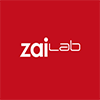
ZLAB
Zai Lab ($ZLAB) CEO's Mass Sales: The Real Story Behind $732M Cash Position
09/12/2025 20:50
Sentiment
Summary
- Zai Lab ($ZLAB) CEO Du Ying executed large-scale sales from March-August 2025, though many transactions were automatic sales from RSU vesting
- The company maintains $732 million in cash with a robust oncology-focused pipeline and strategic partnerships with global pharmaceutical companies
- Clinical data releases and NDA submissions scheduled for H2 2025 will be critical determinants of stock direction
POSITIVE
- Consecutive positive clinical pipeline results - Karxt Phase 3 success, TIVDAK survival improvement, FDA Fast Track designation
- Strong cash position of $732.16 million providing multi-year R&D investment capacity
- Strategic partnerships with global pharmaceutical giants including Tesaro, Bristol-Myers Squibb, Amgen, and Pfizer
- Multiple commercialized products and TTM revenue of $427.8 million achieved
NEGATIVE
- Persistent large-scale CEO selling creating downward pressure - $13 million worth disposed during March-August 2025
- Q2 2025 revenue missed analyst expectations by 12%, highlighting near-term execution concerns
- P/S ratio of 7.94x suggests high expectations already priced in, creating correction risk
- TTM net loss of $212.5 million indicates time needed for profitability improvement
Expert
From a biotech perspective, Zai Lab's insider selling appears less concerning when considering RSU vesting characteristics. The cash reserves and pipeline progress suggest current levels may present long-term investment opportunities. However, volatility around clinical data releases should be carefully considered.
Previous Closing Price
$17
-0.34(1.96%)
Average Insider Trading Data Over the Past Year
$28.91
Purchase Average Price
$33.24
Sale Average Price
$289.1K
Purchase Amount
$23.36M
Sale Amount
Transaction related to News
Trading Date | Filing Date | Insider | Title | Type | Avg Price | Trans Value |
|---|---|---|---|---|---|---|
12/16/2025 | 12/16/2025 | Sale | $ |
Zai Lab ($ZLAB) has been drawing intense investor attention lately, and for good reason. This China-based biopharmaceutical company with a $3.69 billion market cap is sending intriguing signals through its insider trading patterns that warrant careful analysis. Zai Lab, founded in 2013, is a comprehensive biopharmaceutical company focused on discovering, developing, and commercializing innovative therapies across oncology, immunology, neuroscience, and infectious diseases. The company has established strategic partnerships with global pharmaceutical giants including Tesaro, NovoCure, Deciphera Pharmaceuticals, Bristol-Myers Squibb, Amgen, and Pfizer, positioning it as a notable player in the industry. With commercialized products like Zejula (ovarian cancer treatment), VYVGART (myasthenia gravis treatment), and NUZYRA (pneumonia treatment), along with a robust oncology pipeline, Zai Lab has built a solid foundation for growth. The most striking pattern emerges from CEO Du Ying's selling activity. From March through August 2025, he consistently executed large-scale sales, most notably disposing of 196,389 shares worth approximately $6.7 million over just four days from March 2-5. This was followed by sales of 100,000 shares for about $2.97 million in May and another 196,000+ shares for roughly $6.9 million in August. The pattern shows consistent 50,000-share blocks per individual transaction. However, interpreting these large-scale sales as purely negative signals would be premature. A closer examination of the insider trading data reveals that many transactions stem from RSU (Restricted Stock Unit) vesting and automatic tax-related sales. RSUs typically vest equally over 4-5 years, with automatic sales occurring at vesting to cover tax obligations. Indeed, several executive transactions explicitly note 'automatic sales to cover taxes upon vesting.' So what criteria should investors use to interpret these insider transactions? First, consider the stock price levels at the time of sales. The CEO's March mass sales occurred when shares were trading at $32-35, more than double the August 2024 low of $16. Similarly, May and August sales at $29-30 and $34-35 levels respectively suggest profit-taking after substantial appreciation. More importantly, Zai Lab's fundamentals appear strong enough to offset insider selling pressure. Q2 2025 TTM revenue reached $427.8 million, and while the company posted a net loss of $212.5 million, this is typical for biotech companies in growth phases due to expanded R&D investments. Particularly noteworthy is the company's cash position of $732.16 million, sufficient to fund operations and pipeline development for several years ahead. Recent clinical achievements are also compelling. In July 2024, efgartigimod injection received approval in China, and October brought positive Phase 3 results for schizophrenia treatment Karxt. 2025 has seen continued momentum with TIVDAK showing improved overall survival in Chinese cervical cancer patients and ZL-1310 receiving FDA Fast Track designation. Investors should pay particular attention to upcoming clinical timelines and approval schedules. Zai Lab plans to submit an NDA for Karxt in early 2025 and initiate a pivotal study for ZL-1310. If these clinical milestones proceed as planned with positive outcomes, current insider selling pressure may prove temporary. Conversely, warning signs exist. Q2 2025 revenue missed analyst expectations by 12%, raising near-term execution concerns. The P/S ratio of 7.94x is elevated relative to biotech peers, suggesting high growth expectations are already priced in. Any disappointments in clinical progress or revenue growth could trigger significant price corrections. Geopolitical risks associated with Chinese biotech companies also merit consideration. US-China trade tensions or regulatory changes could amplify volatility and influence insider selling timing. What strategy should investors adopt? Short-term, expect continued selling pressure in the $32-35 range. Monitoring additional CEO selling schedules and other executives' RSU vesting dates is crucial. However, from a long-term perspective, the pipeline quality and financial health suggest current levels may present buying opportunities. The key is closely tracking clinical data releases and regulatory approval timelines. Particularly, multiple clinical results and NDA submission progress scheduled for H2 2025 will be critical determinants of stock direction. Investors must navigate carefully between the conflicting signals of insider selling and fundamental improvements as they approach these catalyst events.